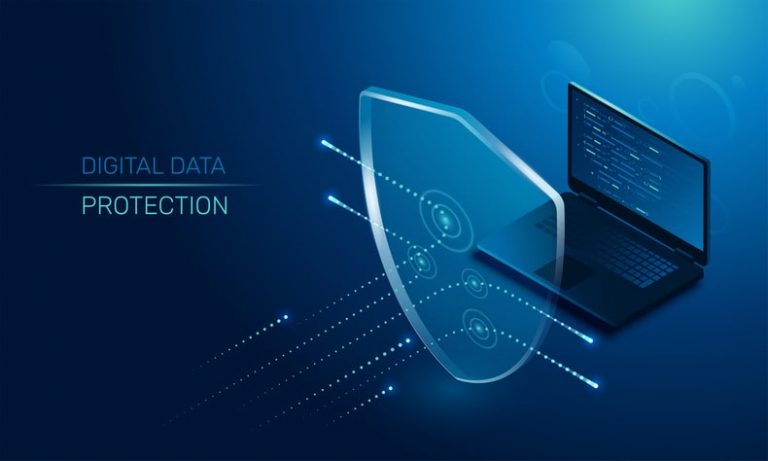Examining the Impact of Cybersecurity: Advantages and Challenges
In a digitalised world, firms are steadily fortified by information technology, aiming to shield themselves from the pervasive threat of cyber intrusions. As organisations digitally evolve, they simultaneously navigate an expanding cyber threat landscape; thus, emphasising the critical role of cybersecurity. Regarded as a safeguard, cybersecurity encompasses robust policies and defences designed to protect systems and networks from unauthorised exploitation.
Investment in cybersecurity is surging, a testament to the value placed on safeguarding intellectual property, personal data, and critical assets. In the arena of modern commerce, a well-articulated cybersecurity strategy is not just advantageous—it has become an imperative for survival.

These days, studying cybersecurity involves examining how well it supports the core values of confidentiality, integrity, and availability. Leveraging a systematic approach to cyber defence practices is key to safeguarding organisational assets. As such, cybersecurity professionals require a profound understanding of current defence mechanisms and their limitations.
Understanding Cyber Attack Motivations
Cyber attacks are multifaceted in their motivations, often diverging beyond mere financial gain or data theft. They include:
- Unauthorised Data Access: This act often involves cybercriminals gaining illegal entry into systems, modifying, or outright destroying data.
- Financial Extortion: Cyber attackers frequently coerce victims into paying a ransom in exchange for the non-disclosure of sensitive information.
- Corporate Espionage: Competitors may deploy hackers to purloin trade secrets or intellectual property, converting underground market transactions into a means to undermine a rival company’s competitive edge.
- Operational Disruption: Cyber attacks may aim to hamstring an organisation’s operational workflow, causing significant downtime and financial havoc.
- Reputational Damage: Subjected to breaches, enterprises suffer diminished trust among customers and partners, a tarnished brand, and potential long-term consumer aversion.
Amidst our escalating reliance on digital systems, the sophistication of cyber threats evolves in tandem. The imperative for robust cybersecurity measures is vividly exemplified by notorious breaches like those experienced by Equifax in 2017 and Marriott in 2018, which resulted in colossal data exposure and longstanding reputational damage. Thus, investing in cybersecurity is not merely a protective step but a savvy strategic maneuver in an era where digital resiliency equates to organisational vitality.
The Paramount Importance of Cybersecurity
In today’s digital ecosystem, cybersecurity is no longer a luxury but a fundamental component that underpins the operational integrity of both individuals and organisations. It provides a shield against a multitude of cyber threats that aim to siphon off sensitive and confidential information such as personally identifiable information (PII), personal health information (PHI), financial details, trade secrets, and sensitive government data.
Constant monitoring and advanced systems act as vigilant protectors, enabling secure access to the internet, preventing fraud, and thwarting online assaults. Moreover, gaining a cybersecurity certification empowers professionals with the skills necessary to mitigate, respond, and neutralise security breaches effectively.
Here are 11 pivotal benefits of robust cybersecurity measures for businesses:
- Fortifies Personal Data: Cybersecurity measures are vital to protect sensitive information from both internal and external threats. Implementing robust strategies safeguards not only customer and employee privacy but also the entire organisational structure from malicious intents.
- Upholds Brand Reputation: A breach can tarnish years of brand equity overnight. Cybersecurity systems can fend off these catastrophic blows, allowing businesses to maintain their reputations and keep customer trust intact.
- Augments Productivity: Cyber threats like viruses can paralyse networks and halt business operations. Proactive cybersecurity solutions like automated backups and firewalls minimise these disruptions, thereby enhancing overall productivity.
- Facilitates Remote Work Environments: With the surge in remote work, the protection of sensitive data across multiple entry points has become critical. Cybersecurity provides a secure hub for storing data and shields home Wi-Fi networks from potential intrusions.
- Ensures Regulatory Compliance: Adhering to legal standards such as HIPAA, SOC, PCI DSS, and GDPR is essential for avoiding hefty fines and penalties, verting an organisation’s compliance narrative into one of its strengths.
- Boosts Cyber Posture: Real-time monitoring and swift automated response systems enable businesses to detect and respond to threats promptly, solidifying their cybersecurity posture.
- Optimizes Data Management: Secure and efficient management of data is integral to an organisation’s marketing and product strategies. Robust cybersecurity ensures that this invaluable asset is kept out of the wrong hands.
- Educates and Empowers the Workforce: Training employees on cyber risks and proper response protocols fortifies the first line of defense—the human element—against cyber attacks.
- Cultivates Trust and Credibility: A record of strong cybersecurity fosters confidence among customers and investors, contributing to business growth and a solid market presence.
- Streamlines Access Control: By managing access to systems and data, cybersecurity measures help organisations assert control over their internal processes, mitigating the risk of unauthorised access or breaches.
- Backs the IT Team: A well-supported IT team that is versed in the latest cybersecurity trends and technologies plays a pivotal role in ensuring the smooth and secure day-to-day functioning of an organisation.






